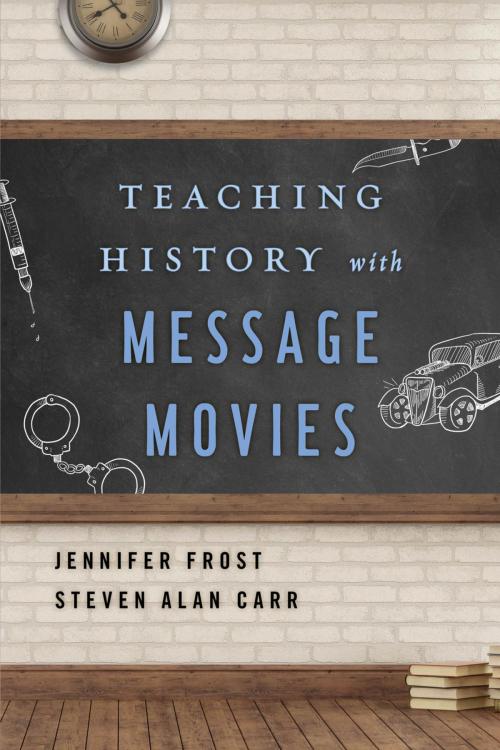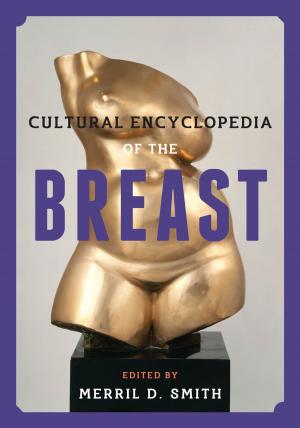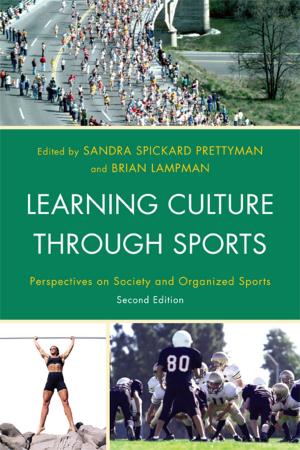Teaching History with Message Movies
Nonfiction, Reference & Language, Education & Teaching, Teaching, Teaching Methods, Social & Cultural Studies, Social Science, Cultural Studies, Popular Culture| Author: | Jennifer Frost, Steven Alan Carr | ISBN: | 9781442278394 |
| Publisher: | Rowman & Littlefield Publishers | Publication: | March 12, 2018 |
| Imprint: | Rowman & Littlefield Publishers | Language: | English |
| Author: | Jennifer Frost, Steven Alan Carr |
| ISBN: | 9781442278394 |
| Publisher: | Rowman & Littlefield Publishers |
| Publication: | March 12, 2018 |
| Imprint: | Rowman & Littlefield Publishers |
| Language: | English |
Popular media has become a common means by which students understand both the present and the past. Consequently, more teachers are using various forms of popular culture as pedagogical tools in the history classroom. With their emphasis on issues such as drug and alcohol abuse, sex, race, gender, and violence, social problem films, or “message movies,” offer a compelling look at the eras in which they were made. In order to facilitate the use of social problem films as learning tools, however, teachers of history need a dependable resource.
Teaching History with Message Movies is a guide for teaching US history using these films as vivid historical illustrations and tools for student engagement. In addition to covering key themes and concepts, this volume provides an overview of significant issues and related films, a tutorial in using film in historical methodology, user guides for thinking about social problems on screen, and sample exercises and assignments for direct classroom use. Focusing on the issues that plaguing society, the book draws on films such as I Am a Fugitive from a Chain Gang (1932), Gentleman’s Agreement (1947), The Snake Pit (1948), Silkwood (1983) and One Flew Over the Cuckoo’s Nest (1975), among others.
This resource enables teachers to effectively use films to examine key social and cultural issues, concepts, and influences in their historical context. Teaching History with Message Movies will be an invaluable asset to any teacher of history in middle- and secondary school settings, as well as at the undergraduate level.
Popular media has become a common means by which students understand both the present and the past. Consequently, more teachers are using various forms of popular culture as pedagogical tools in the history classroom. With their emphasis on issues such as drug and alcohol abuse, sex, race, gender, and violence, social problem films, or “message movies,” offer a compelling look at the eras in which they were made. In order to facilitate the use of social problem films as learning tools, however, teachers of history need a dependable resource.
Teaching History with Message Movies is a guide for teaching US history using these films as vivid historical illustrations and tools for student engagement. In addition to covering key themes and concepts, this volume provides an overview of significant issues and related films, a tutorial in using film in historical methodology, user guides for thinking about social problems on screen, and sample exercises and assignments for direct classroom use. Focusing on the issues that plaguing society, the book draws on films such as I Am a Fugitive from a Chain Gang (1932), Gentleman’s Agreement (1947), The Snake Pit (1948), Silkwood (1983) and One Flew Over the Cuckoo’s Nest (1975), among others.
This resource enables teachers to effectively use films to examine key social and cultural issues, concepts, and influences in their historical context. Teaching History with Message Movies will be an invaluable asset to any teacher of history in middle- and secondary school settings, as well as at the undergraduate level.















